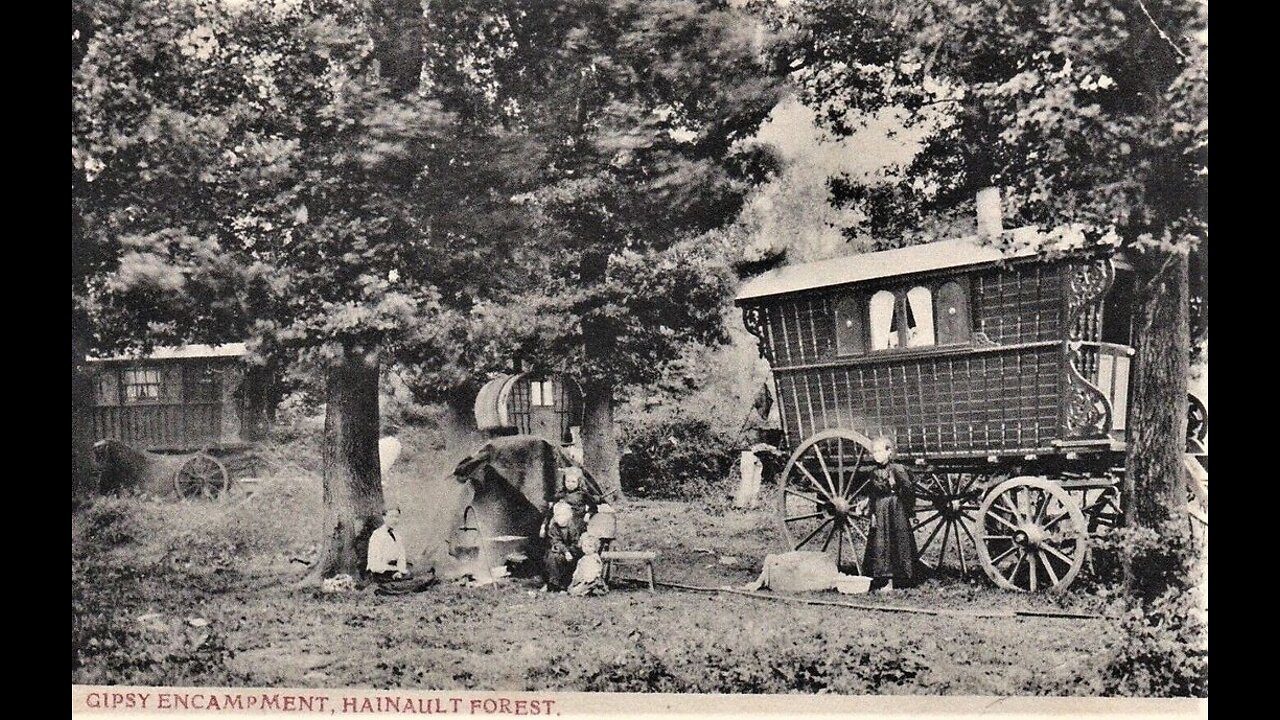Premium Only Content

"The Turanians", by Arthur Machen
You can support me on Patreon! https://www.patreon.com/sststr
Rather a simple tale, originally written in 1897, so rather early in his career, but not published until 1924. It seems rather a good deal open to interpretation. Let's see what the annotations in my book have to say about it:
For his conception of the Welsh Tylwyth Teg, Machen drew upon a rich and heady brew of speculation and theorizing that bubbles up in the 19th century, mingling new scientific ideas with ancient folk legend and lore. A particularly salient example of this intellectual ferment was the hypothesis, advanced by antiquarian David MacRitchie in his "Testimony of Tradition" (1890), "that the fairies of Scotland and Ireland were really non-Aryan, Finno-Urgic peoples ... that there had been little, yellow, slant-eyed devils all over northern Europe". The racial category invoked here is the "Turanian" - an all but unknown term today, but one which in the 19th century stood alongside "Aryan" and "Semite" in a widely used taxonomical triad (although other classificatory schemes existed as well). These designations could be applied in various contexts, indeed, the conceptual evolution of "Turanian" makes for an exemplary case of the way in which language, culture, and race tended to be blurred together in the 19th century. Originally it was a philological category, a posited family of languages - and a deeply flawed one, a kind of omnium-gatherum of leftovers, "comprising the dialects of the nomad races scattered over Central and Northern Asia, the Tunguisic, Mongolic, Turkic, Samoyedice, and Finnic". The category was employed also in the comparative study of religion, as well as in systems of racial classification. Within the latter it was promiscuously employed; to give but one example in a British anthropological context, John Beddoe in his "Races of Britain" presented evidence of two distinct racial groups in Wales, one of which bears as "aspect ... suggestive of a Turanian origin". This idea may be responsible for the ambivalence or inconsistency one finds in Machen's treatment of his own Celtic ancestry, sometimes the Celt is explicitly classified as "Aryan", while elsewhere Machen flirts with the notion of personal descent from the Little People. The Aryan-Semite-Turanian triad also appeared in occult texts with which Machen would likely have been familiar, Madame Blavatsky, for instance, borrowing from Ignatius Donnelly, presented the Turanians as one of her "root races" which emigrated from Atlantis.
paten: during the Eucharist, a gold or silver plate to hold the host.
The picture used is "Great Old Card Gypsy Camp Hainault Forest Gipsy Romany Roma Caravan Essex c.1910", from Mark Crombie
-
 UPCOMING
UPCOMING
The Shannon Joy Show
1 hour ago🔥🔥 Shock Video - Bill Maher Exposes #RealityDC & The UNIPARTY Fraud In One Revealing Monologue On Trump! 🔥🔥
72 -
 LIVE
LIVE
Benny Johnson
1 hour ago🚨BREAKING: Arsonist Who BURNED DOWN Pennsylvania Governor Mansion ARRESTED | Identity REVEALED
6,998 watching -
 LIVE
LIVE
LFA TV
14 hours agoLFA TV - ALL DAY LIVE STREAM 4/14/25
3,960 watching -
 1:00:57
1:00:57
VINCE
3 hours agoAnother Assassination Attempt? | Episode 21 (04/14/25)
203K64 -
 DVR
DVR
Bannons War Room
1 month agoWarRoom Live
11.8M2.9K -
 52:04
52:04
BonginoReport
5 hours agoGruesome Ancient Child Sacrifice Uncovered in the Jungle - BR Early Edition w/ Evita (Ep.181)
144K156 -
 LIVE
LIVE
Caleb Hammer
1 hour agoFailed OF “Model” Is Batsh*t Crazy | Financial Audit
112 watching -
 LIVE
LIVE
The Big Mig™
4 hours agoRare Earth Minerals The New Cold War
1,827 watching -
 12:09
12:09
China Uncensored
3 hours agoWill China Invade Taiwan This Year?
7.1K4 -
 2:35:21
2:35:21
Matt Kohrs
13 hours agoStocks Bounce, Breaking Tariff News & Live Trading || The MK Show
35.9K3